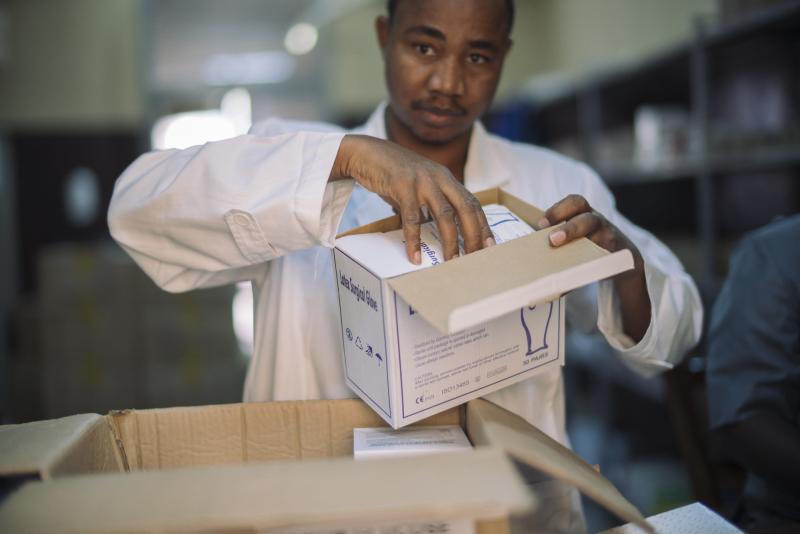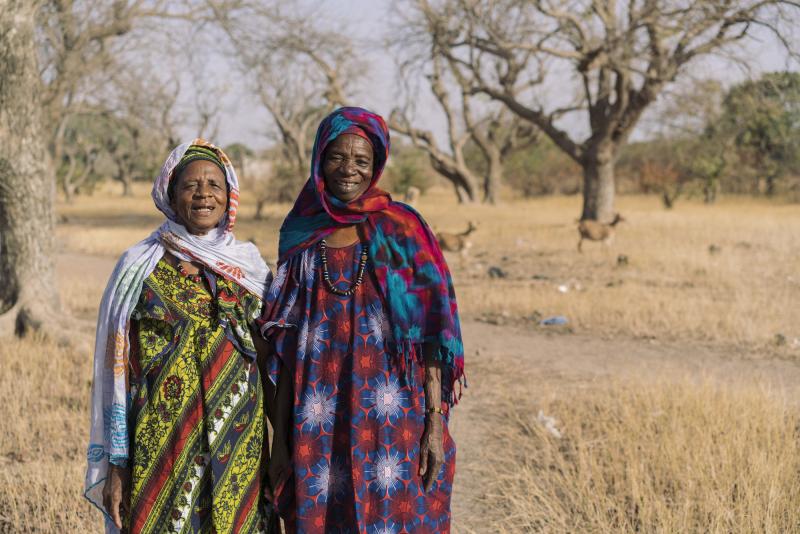Where We Work
See our interactive map


“I did the blood draw and sent it to Bamako,” says pharmacist Jonas Kamaté. “It came back positive." Photo by Nana Kofi Acquah for IntraHealth International.
Investing in local expertise has far-reaching impacts on health. Here’s a powerful example.
When a little girl showed up at the hospital in Kayes, Mali, in 2014 with what seemed to be symptoms of Ebola, no one wanted to touch her. Everyone was scared of becoming infected.
But a pharmacist named Jonas Kamaté knew he could help.
Kamaté had gone through an infection-prevention training that was part of IntraHealth International’s comprehensive fistula care program for the local health team in Kayes. Our Fistula Mali team had trained health workers at all levels in the hospital on different aspects of care for women with obstetric fistula, from making them feel welcome in the facility to providing high-quality surgical repair to helping them reintegrate into their communities.
She was the only one at our hospital to be infected. It did not spread, thanks to the training.
While infections and complications had dropped at the hospital after the training, the staff had never seen anything like this little girl’s case before. Kamaté knew he had to act.
“I did the blood draw and sent it to Bamako,” he says. “It came back positive. The little girl died, but she was the only one at our hospital to be infected. It did not spread, thanks to the training.”
We had no idea our work to help women and girls with obstetric fistula, a devastating childbirth injury, could also help prevent an outbreak of a deadly, highly infectious disease like Ebola. But this is a perfect example of how investing in local expertise—in local NGOs and teams of health workers who know their communities’ needs and are dedicated to meeting them—can have far-reaching impacts on health.
“You could have brought Americans here to do this,” says Dr. Kalilou Outtara, a surgeon and master trainer who works with the Fistula Mali team in Kayes. “But you said, ‘No—we’re going to help you develop your own human resources and introduce training for fistula surgery.’ So now you’re not only taking care of fistula patients, you’re improving the overall quality of care in Mali. Outside of IntraHealth, no other NGO has done that.”
Mali has made incredible progress toward sustainable, holistic, high-quality fistula care. This new report explores the country as a case study for the region and globally. It outlines the five key interventions that have driven Mali’s progress:
A key element in the Fistula Mali team’s success has been its partnerships with local companies, NGOs, and community groups, who can often help find hard-to-reach clients in need.
This is one of the most difficult parts of providing fistula care in Mali, identifying the women who need it. Many are ostracized from their communities and go into hiding, or they live in the hard-to-reach areas—deserts and communities without roads, electricity, or running water—that are sometimes referred to as deep Mali.

"Now we tell every pregnant woman we see that she must go for prenatal care,” says Malado (right), a former fistula client. Photo by Nana Kofi Acquah for IntraHealth International.
This is where outreach and community health workers from local NGOs are essential. They travel into the remotest villages, develop relationships with their communities, and bring health-related messages and education that often lead them to the women most in need of fistula repair services.
And often, those women become powerful allies within their communities. That’s what happened with Malado and Saiba, two women who were in their seventies by the time they underwent repair surgeries. Both had lived with obstetric fistula for over fifty years.
“We consider it our role in the community now to tell every pregnant woman we see that she must go for prenatal care,” Malado says. “And that she must deliver in a health facility.”
Read the report: 10 Years of Obstetric Fistula Care in Mali: A Case Study of Multisectoral, Holistic Treatment for Women and Girls
Also read: New Report: Mali Offers a Model Approach to Fistula Care in West Africa
The Fistula Mali project was funded by the US Agency for International Development. Learn more about IntraHealth’s work in Mali to improve health and well-being for families.
Get the latest updates from the blog and eNews




